Warning of Israel's acts of sabotage, Iran FM urges IAEA to pursue independent, impartial approach
Iranian Foreign Minister Hossein Amir-Abdollahian has warned of the Israeli regime's acts of sabotage, urging the International Atomic Energy Agency (IAEA) to maintain its independent, professional and impartial approach.
Amir-Abdollahian made the remarks in a Saturday meeting with Director General of the International Atomic Energy Agency (IAEA) Rafael Grossi, who is in Tehran on a day-long visit to discuss the remaining issues between the two sides.
The top Iranian diplomat stressed the importance of improving cooperation with the UN nuclear agency on issues beyond supervision and inspection, including the IAEA's support for Iran's peaceful nuclear industry.
Warning about Israel's moves to sow discord and create crisis, Amir-Abdollahian said the IAEA must be cautious about the regime's efforts to take advantage of the agency's mechanisms to advance its plots.
He expressed hope that negotiations and understanding between Iran and the IAEA would prepare the ground for implementation of bilateral agreements.
He also hoped that the IAEA chief's visit to Tehran would further promote mutual confidence and cooperation.
Head of the Atomic Energy Organization of Iran (AEOI) Mohammad Eslami said on Saturday that Tehran and the UN nuclear agency agreed on a roadmap to resolve all outstanding issues which could help secure the revival of the 2015 Iran deal with world powers.
"Today, we reached a conclusion that what is to be exchanged between the [International] Atomic Energy Agency and the Atomic Energy Organization [of Iran] should be done by end of (the Iranian month of) Khordad (June 21)," Eslami said in a joint news conference with Grossi in Tehran.
IAEA ready to support joint projects to use peaceful nuclear energy: Grossi
Grossi, for his part, said the IAEA is ready to support joint projects with Iran in the field of peaceful use of nuclear energy and emphasized the need to strengthen bilateral cooperation and find creative ways toward that goal.
The IAEA head said his current trip to Tehran indicates agency's will to resolve the remaining issues and enhance cooperation through dialogue and mutual understanding.
The Iranian foreign minister and the IAEA chief also described Iran-IAEA cooperation as positive and successful.
Grossi arrived in Tehran late on Friday to discuss one of the last thorny issues blocking the revival of the Iran deal, officially known as the Joint Comprehensive Plan of Action (JCPOA), as the eighth round of the talks between Iran and the P4+1 group of countries has reached a crunch point.
The IAEA certified Iran’s compliance with the 2015 Iran deal 15 times until 2019, when the country began to suspend some of its nuclear obligations in a legal retaliatory move, a year after Washington unilaterally left the deal.
After its exit, Washington returned the sanctions that had been lifted under the deal. Washington’s European allies in the deal have been toeing the sanctions line closely by ending their trade activities with Iran.
Israel, which is widely believed to be in possession of nuclear warheads, has been seeking to sabotage Iran’s peaceful nuclear work through acts of terror against both Iranian nuclear scientists and facilities and killing the 2015 deal between Tehran and world powers.
Iran, IAEA issue joint statement on enhanced cooperation, dialogue to solve remaining issues
At the end of the IAEA chief's visit to Tehran, Eslami and Grossi issued a joint statement on the importance of accelerating and strengthening their cooperation and dialogue in order to solve the remaining issues.
The AEOI and the IAEA agreed, in continuation of their cooperation as stated in their joint statement of August 26, 2020, to accelerate and strengthen their cooperation and dialogue aimed at the resolution of the remaining issues.
According to the statement, the AEOI will provide to the IAEA, no later than March 20, 2022, written explanations, including related supporting documents to the questions raised by the agency which have not been addressed by Iran on the issues related to three locations where the IAEA claimed it had found particles of processed uranium.
"Within two weeks after receiving the AOEI’s written explanations and related supporting documents, the IAEA will review this information and will submit to the AEOI any questions on received information," it said.
The AEOI and IAEA will meet in Tehran within one week after the agency's submission of any questions on such information to Iran and will discuss them while separate meetings will be held for each location.
The IAEA chief will present a report to the 35-member Board of Governors about his conclusion by June 2022 upon the completion of all the above-mentioned activities.
VIDEO | Yemen; a bone in Israeli neck
D-8’s role in Iran’s economy after Cairo summit
China slams US as ‘war-addicted’ threat to global security
China ‘firmly opposes’ US military aid to Taiwan
VIDEO | Press TV's News Headlines
President Yoon Suk Yeol to be removed from office
At least 19 Gazans killed by Israeli airstrikes since dawn: Medics
Leader: Iran neither has nor needs proxy forces


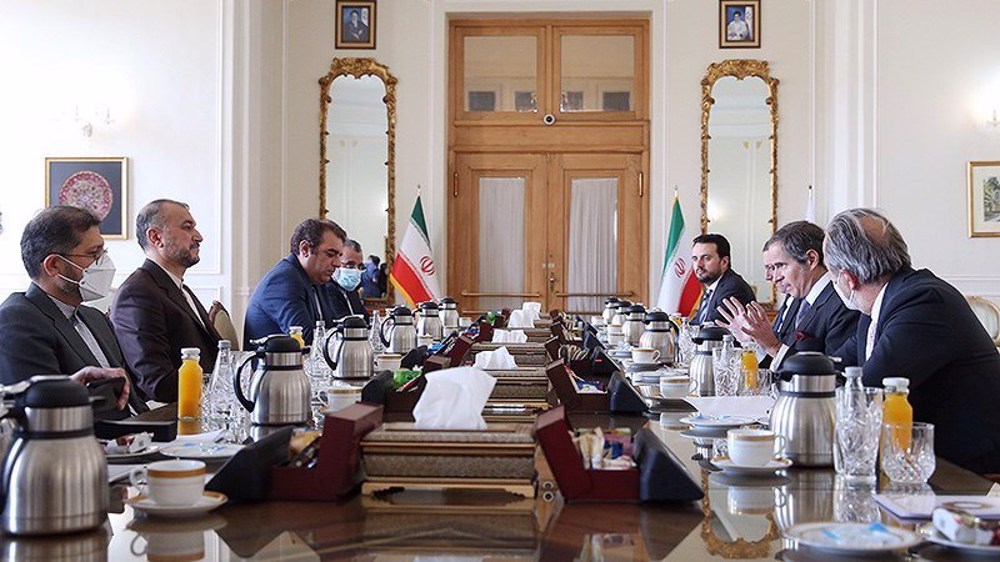
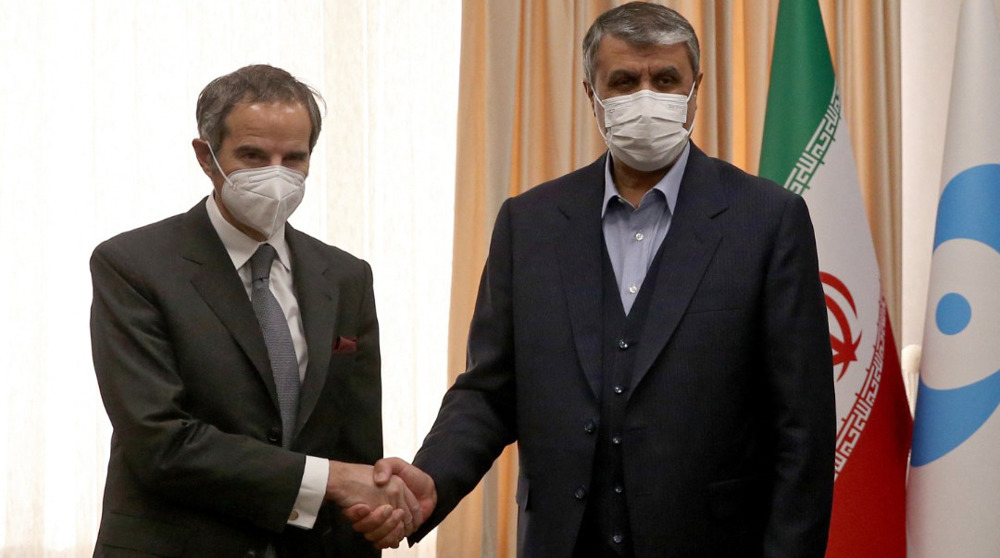
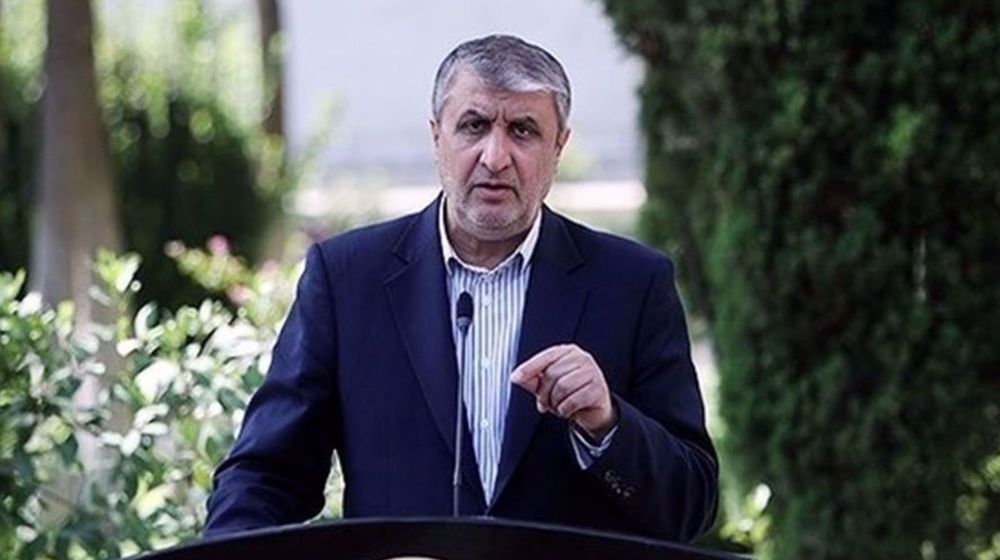
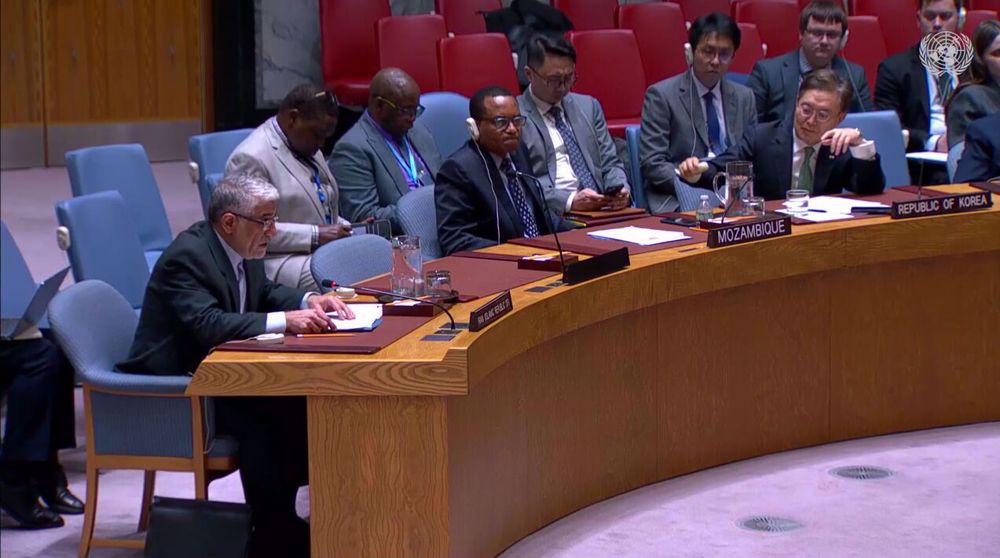
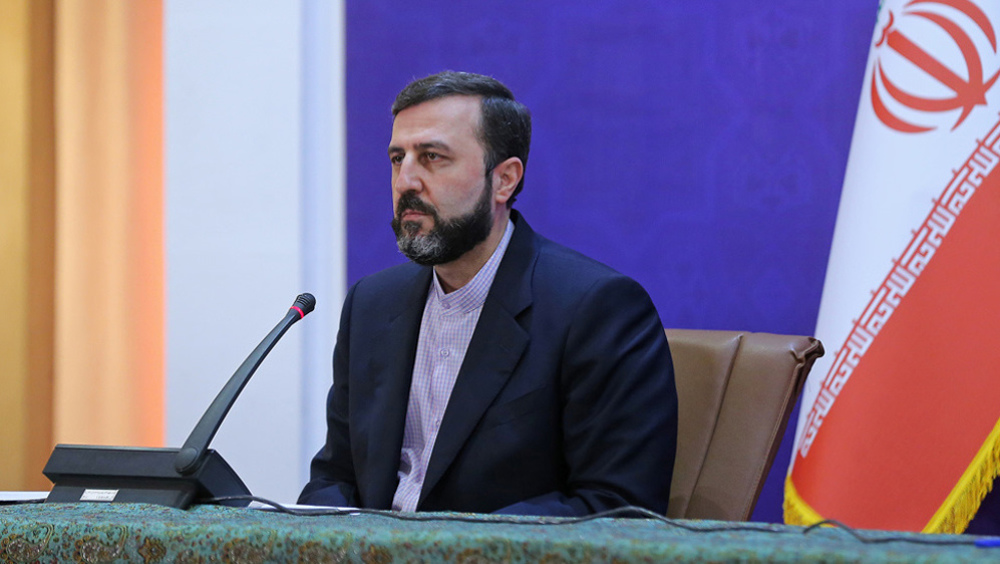




 This makes it easy to access the Press TV website
This makes it easy to access the Press TV website